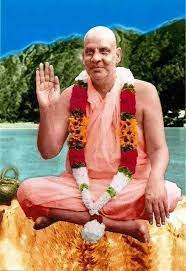Origin of Yoga and Swami Sivananda
The origin of yoga can be traced back to ancient India, over 5,000 years ago. Swami Sivananda, a Hindu spiritual teacher and founder of the Divine Life Society, believed that the practice of yoga was originally passed down orally from teacher to student. The earliest written evidence of yoga can be found in the Upanishads, ancient Hindu scriptures.
In his teachings, Swami Sivananda emphasized the importance of balancing the physical, mental, and spiritual aspects of life through the practice of yoga. He believed that yoga was not just a physical practice, but a means of attaining spiritual liberation and union with the divine. He emphasized that yoga was a way of life that leads to physical health, mental peace, and spiritual enlightenment.
Swami Sivananda described yoga as a set of practices aimed at integrating the body, mind, and spirit. The physical practices of yoga, such as asanas (postures) and pranayama (breathing exercises), help to promote physical health and well-being. The mental and emotional practices of yoga, such as meditation and ethical conduct, help to cultivate a sense of inner peace and mental clarity.
The ultimate goal of yoga, according to Swami Sivananda, is self-realization, the realization of one's true nature as a divine being. He believed that through the practice of yoga, one could overcome the limitations of the ego and connect with the ultimate reality of the divine.
In his book, "The Complete Works of Swami Sivananda," he outlines the key principles of yoga, including ahimsa (non-violence), satya (truthfulness), brahmacharya (celibacy), asteya (non-stealing), aparigraha (non-possessiveness), and yama (moral codes). He also explains the importance of practicing yoga in a disciplined and systematic manner, through the eight limbs of yoga, also known as Ashtanga Yoga.
The eight limbs of yoga, as outlined by Swami Sivananda, are:
Yama: the moral codes of yogaNiyama: personal disciplines of yogaAsana: postures of yogaPranayama: breathing exercisesPratyahara: sense withdrawalDharana: concentrationDhyana: meditationSamadhi: union with the divine
According to Swami Sivananda, the practice of yoga should be integrated into daily life, and not just limited to a specific time or place. He emphasized that the principles of yoga should be practiced in all aspects of life, including work, relationships, and daily activities.
In addition to promoting physical, mental, and spiritual well-being, Swami Sivananda believed that the practice of yoga could also lead to greater self-awareness, increased empathy, and a more harmonious relationship with others and the environment. He believed that through the practice of yoga, individuals could develop greater compassion and understanding for others, and work to create a more peaceful and just world.
Overall, the teachings of Swami Sivananda offer a comprehensive understanding of the origin and practice of yoga. He believed that yoga was a timeless and universal path to self-realization that has been practiced for thousands of years and remains relevant today. He emphasized the importance of integrating the principles of yoga into daily life, and the potential for yoga to transform the individual and the world.
In conclusion, Swami Sivananda's teachings offer a rich and deeply spiritual understanding of the origin and practice of yoga. He believed that through the practice of yoga, individuals could cultivate physical health, mental peace

